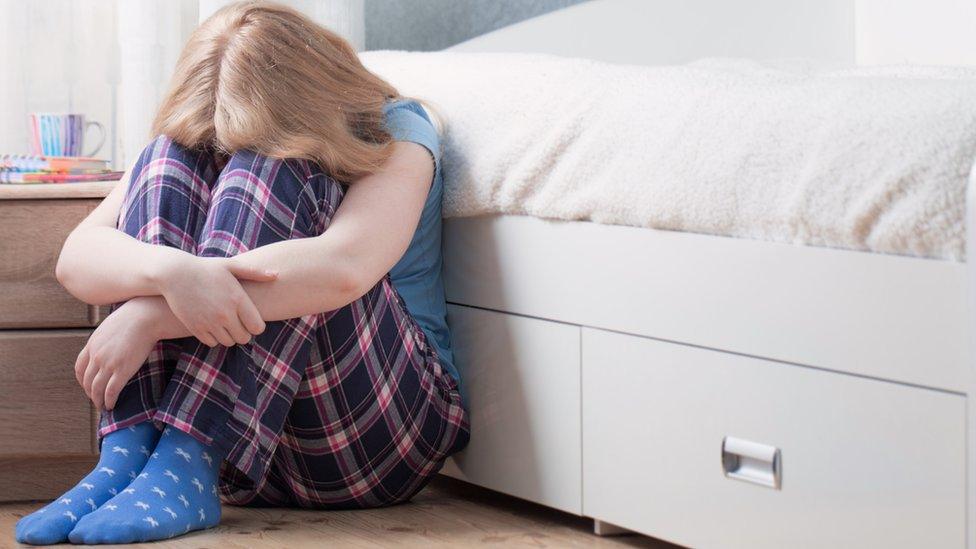Jeremy Hunt answers young people's questions on mental health
- Published
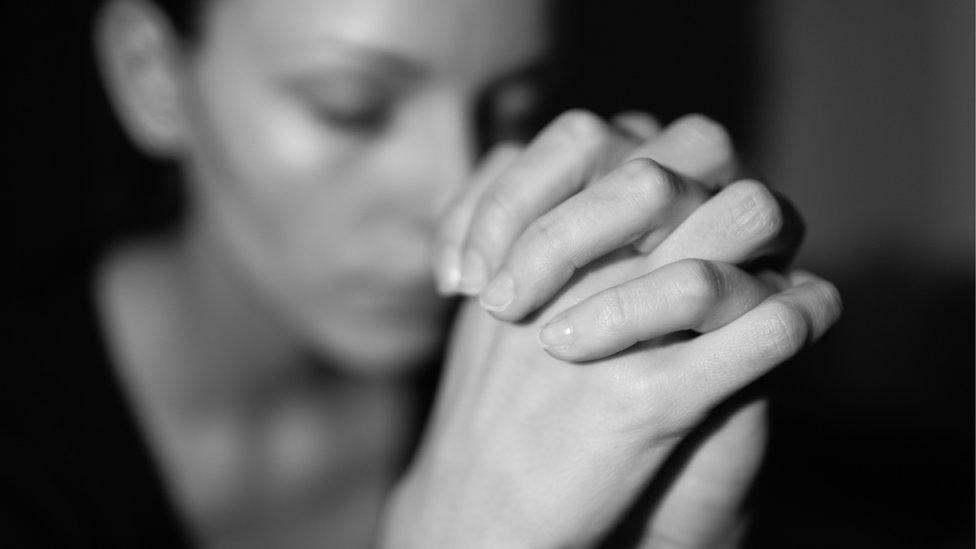
"It's an actual illness - you would never say to someone who has a broken leg, oh just deal with it, it'll be fine."
Those are the words of one young woman on her experience of child and adolescent mental health services, or CAMHS, speaking as part of the latest episode of Radio 4's series Storm and Stress.
A number of young people recorded their frustrations anonymously - delays, sudden switch to adult services at 18 and lack of support in schools, for example - for the programme.
So how does the man in charge of health and social care in England, Jeremy Hunt, respond to them?
Waiting times - how long does it take?
Young person: "I was on the waiting list for 16 months [for CAMHS], my school referred me first, then I had an assessment," said one contributor of her teenage experience.
"They said they'd get back to me 'whenever we can, because there's a bit of a waiting list'. You think a couple of months maximum, but we didn't hear anything for months.
"I honestly believe if I had got the help within a couple of months I would not have been at CAMHS until I was 17 and that would have freed up space for others, but the system is leaving people until they're so desperate and right on the brink."
Jeremy Hunt: "It's totally wrong and I don't want to defend that, I have two daughters and I wouldn't want them to wait that long.
"We want to sort that out. Sometimes people get a terrible message - 'we can't see you until you're even more ill'."
The current mental health green paper contains a plan to reduce waiting times to four weeks, which this is currently being piloted for some conditions.
"For eating disorders we want to get to 95% of young people within a week if there's an urgent need, but 14 or 18 months is obviously totally unacceptable," Mr Hunt said.
Up to a quarter of the country should see the four-week waiting time limit implemented by the next election, but for this to happen CAMHS needed to double in size, he said.
"There are no shortcuts to this, we have to have more capacity in the system," he said.
Child to adult - why the cliff edge?
Another young woman who had spent some time in adolescent inpatient units described her feelings of being let down by the system as she entered adult services.
Young person: "Straight before my 18th birthday I got transitioned to an adult unit. I was the youngest there by far.
"It's a big smack in the face because everything is so different.
"Just because you've got a year older overnight it doesn't mean anything has changed for you.
"Changing the help you were getting so quickly, so suddenly, isn't always the right thing to do."
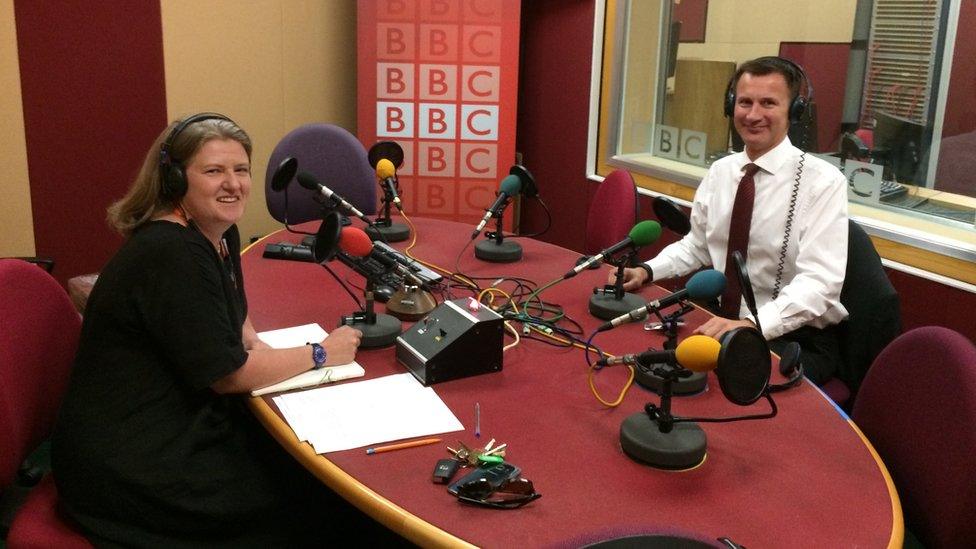
Jeremy Hunt responded to young people's comments for the programme
Jeremy Hunt said the system was changing.
"People do feel like they're falling off a cliff edge when they leave the care of CAMHS and move into the adult services.
"In the short-term, NHS England has put in place some financial incentives to encourage services across the country to join up their youth services with their adult services.
"And in fact there are parts of the country which are now doing zero to 25-year-old mental health services."
The programme's investigation found that while the demand for such services had increased, to a point where some are overwhelmed, those reorganising the services said extra finance was not in place.
In response, Mr Hunt said some of the recently-announced new NHS funding could be directed towards these services.
Schools - could they do more?
The government's green paper on adolescent mental health recommends schools should do more.
One young woman who was diagnosed and treated in an adolescent unit told the BBC investigation her school had difficulty accepting her mental health condition.
Young person: "I was 13 and I had been given a bipolar diagnosis. The psychologists tried to explain that to my school, but they didn't quite get it.
"Up until that point I'd been considered a naughty girl, not someone who was suffering from anything.
"It was hard for them to understand that an illness can make someone act differently."
Jeremy Hunt says new school-based services. which will be independent from CAMHS, are planned to spot and deal with problems before they become serious.
Two pilot areas will be announced later this year.
"If we can work in partnership with them, they actually understand their children far more than we do in the NHS, and they can help us identify the potential children with issues early, but they need to build up understanding," Mr Hunt added.
Mental and physical health - why the confusion?
The issue of confusion with physical health problems, and a lack of being taken seriously over mental health, was also raised by those interviewed for the programme.
One young teacher described her visits to the doctor and their refusal to believe her. Another interviewee called for parity with physical health.
Young person: "I had an underactive thyroid so everything was being played off against that. I also had kidney problems so they were saying it's because your physical health isn't great so we think your mental health is just being affected by that.
"Someone with a broken leg would never be left, 'oh you can fix it by yourself, oh we'll see you in 16 months and see how it is'.
"There really needs to be a reallocation between mental and physical health."
Jeremy Hunt pointed to 2012 legislation which now requires clinical commissioning groups, which control local NHS budgets, to increase their mental health spending in proportion to budget increases - which wasn't the case in the past, he says.
"They can't do what's happened for many previous years, which was to raid the mental health budget when they have budgetary pressures elsewhere."
What about the future?
Jeremy Hunt: "There is no silver bullet other than to increase our capacity to deliver mental health services and that takes time. This isn't something you can solve overnight.
"To make sure people don't just have quick access, but access to the types of treatment that solve the problem, it's incredibly important that the treatment we give people is evidence-based."
Sally Marlow, mental health researcher from King's College London, who led the investigation for the BBC and presented the Storm and Stress series, said the CAMHS system was fragmented and disjointed from top to bottom.
"This fragmentation leads to nobody being in charge and gaps in the system which our young people fall through."
She said there is still lots we do not know about mental illness in our young people.
"We know that, right now, increasing numbers of young women are self-harming, and there are increased rates of depression and anxiety in this group, but crucially we don't know why.
"We can make informed suggestions, but we need to test our hypotheses, because if we don't understand the causes, we won't understand how to treat and even how to prevent."
Storm and stress on Radio 4 is broadcast on Tuesday at 11am and available online and on iPlayer afterwards.
- Published9 May 2018
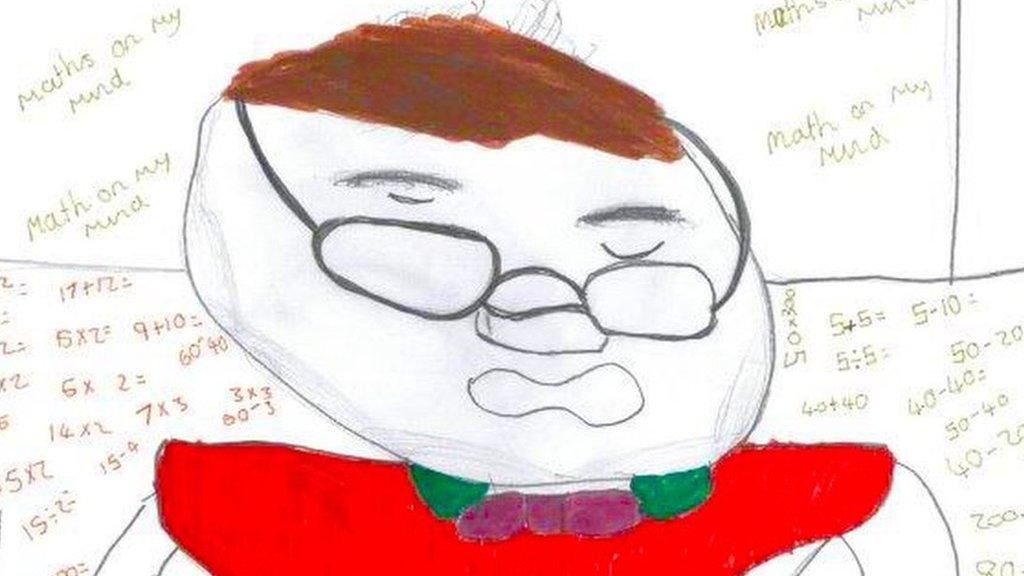
- Published14 May 2018
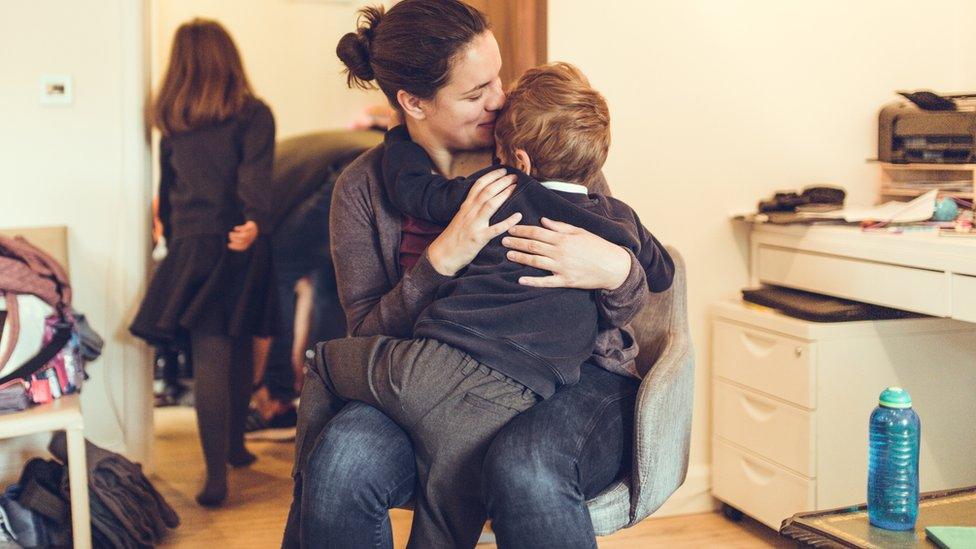
- Published27 October 2017
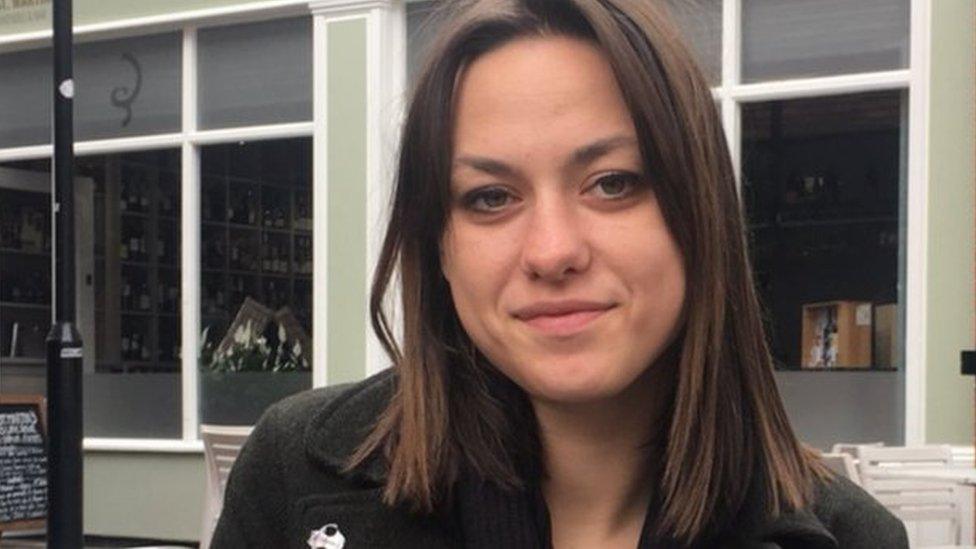
- Published26 April 2018
